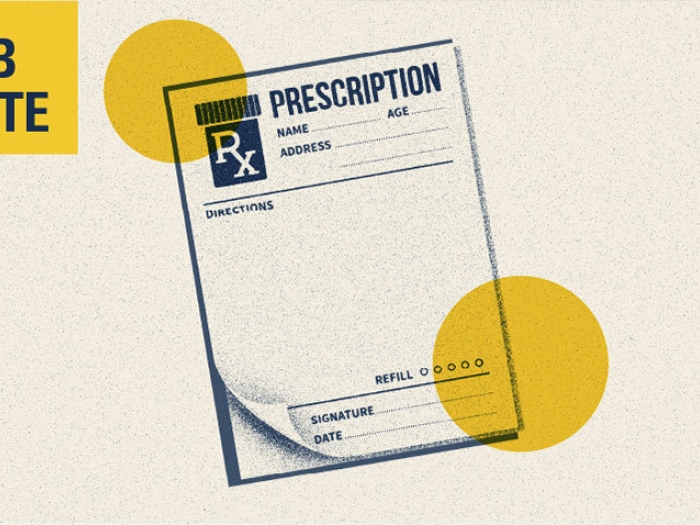Hundreds of thousands of surgical and dental opioid prescriptions are filled a month or more after writing, but one state’s law helped reduce this “delayed dispensing”.
Transcript
Host (00:02):
Welcome to the Michigan Medicine News Break, your daily destination for news and stories about the future of healthcare. Today, could time limits on opioid prescriptions reduce misuse? Hundreds of thousands of surgical and dental opioid prescriptions are filled a month or more after writing, but one state's law helps reduce this delayed dispensing. Most people who get a prescription for opioid painkillers to ease the pain of an operation or dental procedure fill it right away, but a study shows that some fill these prescriptions more than a month later, long after the acute pain from their care should have subsided. In 2019, 1% of opioid prescriptions from dentists and surgeons were filled more than 30 days after writing. According to the study in JAMA Network, opened by a team from the University of Michigan, while low, that percentage would translate to more than 260,000 opioid prescriptions per year, if it generalized to all surgical and opioid prescriptions in the US.
Host (00:53):
The study authors note that state and federal laws regulating the expiration periods for controlled substance prescriptions may be partly to blame. In 2019, 18 states allowed prescriptions for Schedule 2 opioids and other controlled substances, those with the highest risk of being diverted for misuse, to be filled up to six months after writing. Another 8 states allowed these drugs to be dispensed up to one year after the prescription. As evidence, the study examined the effects of a law in Minnesota, which in July 2019, prohibited opioid dispensing more than 30 days after writing. After implementation, delayed dispensing dropped rapidly compared to other states.
Host (01:26):
The authors note that an across-the-board rule limiting the time window for filling opioid prescriptions might inadvertently harm patients who take the drugs for chronic pain. Instead, they say policy makers could implement laws that limit this time window only when opioids are written for acute pain. The authors also note that prescribers can reduce delayed dispensing by including instructions on the prescription, not to dispense opioids after a certain timeframe. For more on this story, and for others like it, visit www.uofmhealth.org/healthblogs, and find the Michigan Medicine News Break wherever you listen to podcasts.

Listen to more Health Lab podcasts - a part of the Michigan Medicine Podcast Network.






